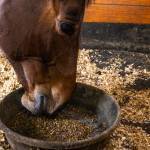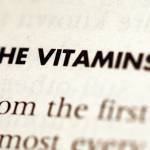Virtual Advice: Nutrition Advisors and Horse Owners

The nutrition advisors at Kentucky Equine Research provide horse owners with practical and science-based insight into nutritional problems.
Exchanges between nutrition advisors and horse owners often unfold over several days, as advisors ask for additional information from the horse owner, or seek advice from colleagues or veterinarians. This back-and-forth process requires time, but this thoroughness is necessary in order for advisors to formulate a comprehensive response. Important to note, nutrition advice never replaces veterinary consultation. Advisors encourage horse owners to address all health concerns with a veterinarian, preferably one already familiar with the individual horse and its management, and nutritional advice should be considered auxiliary. Think of a nutrition advisor as part of your horse’s wellness team.
If you check out this website’s Answer Exchange feature regularly, you know well that the Kentucky Equine Research advisors provide insight into all sorts of nutritional dilemmas. In many instances, these exchanges highlight a single facet of nutrition or nutritional management. In actuality, the conversations are often far more in-depth, with details falling into place little by little.
Here’s an opportunity to get an inside look at actual dialogue between a horse owner and one of our nutrition advisors. The topic: feeding a horse with suspected liver disease.
Horse owner’s initial message: My 27-year-old gelding has been on a stabilized rice bran supplement (20% fat) for more than a year, first in Australia for several months and then in Europe, where he lives now. Though he lost weight during the journey, he easily regained it. However, he became seriously ill two months ago with constant high fevers that lasted for almost 14 days. Bloodwork showed impaired liver function, but tests for piroplasmosis and liver fluke (a parasite) came back negative. The vets diagnosed acute hepatitis and advised me to feed a low-protein diet, as they believe high-protein diets are not well tolerated by horses with possible liver disease. Question: Because this horse had been doing so well on the stabilized rice bran in combination with a no-grain, sugar-free muesli, would I be able to keep feeding the stabilized rice bran to him or is it best to switch feeds? It is the only feed I have known to really help with weight gain in older horses.
Nutrition advisor: To be able to assist you, please provide more information about the available forage (grazing, hay, or haylage) and the amounts of forage, muesli, and stabilized rice bran that he is fed. It is important to think about total daily intakes rather than just the nutrient percent in individual feedstuffs.
While you gather that information, I have included some general nutritional recommendations for horses with liver dysfunction.
Adequate energy and protein remain important nutritional components for horses with suspected liver disease. The following recommendations on forage and concentrates aim to keep energy and protein in steady supply.
For forage, access to unlimited grass pasture is an excellent way to spread out intake throughout the day. The horse doesn’t necessarily have to be out 24/7 (12 hours each is adequate), but short stints on pasture should be avoided so the horse doesn’t gorge. When not on pasture, or if there is no pasture available, the horse should have free-choice access to grass hay. Avoid alfalfa on a daily basis because it is too high in protein for general purposes, but it can be fed if the weight loss is extreme.
Concentrate feeds with a protein content of no greater than 12% and a fat content no greater than 8% are recommended. Oats, processed corn, and molasses provide glucose, which is an important energy source for horses with liver disease. Offering multiple, small meals (four or more) throughout the day is recommended.
Additional oil can be added in limited quantities (0.1 ml/kg BW), particularly if weight loss is a concern. If the high-fiber concentrate has additional oil, then this may not be necessary. A little oil is acceptable but large amounts are not. Supplemental oil can go as high as 0.75 ml/kg BW if needed for extreme weight management as long as it does not affect the palatability of the feed or cause diarrhea.
The fat-soluble vitamins are of particular importance because of possible reduced absorption and storage in the liver. Supplemental vitamin E may be given. A natural-source vitamin E with proven bioavailability, such as Nano-E, is recommended. Any high-iron supplements should be expressly avoided because they are hepatotoxic (damaging to the liver).
Horse owner: My gelding is on grass 24/7. The forage is not the fat “cattle grass” we get on the east coast of Australia or in the Netherlands but more low-bush grass. He is fed concentrate three times a day. Each meal contains 0.5 kg (1 lb) muesli, 0.25 kg (0.5 lb) stabilized rice bran, and 50 g (0.1 lb) soaked beet pulp. We have been giving a mix of oaten hay and alfalfa, mainly because oaten hay is about the only kind of hay available and alfalfa because it has worked in the past for weight gain with this gelding. In addition, he is given a joint supplement and a gut balancer each day.
Overall, even during his illness, he grazed quite well and ate a fair amount of hay. He refused all concentrates. He accepted carrots and carob beans, though! When he experienced high fevers, he lost a bit of weight but not as much as we thought he would. Since his temperature has been normal again, he has started eating his hard feeds, asking for a bit more at each meal. This morning he was on the full amount as before he fell ill.
Nutrition advisor: I am not familiar with the type of grass you mention but gather from your description that the available grazing is poor to fair quality. Regardless, reducing the amount of alfalfa hay offered or even replacing all of it with grass hay would help reduce protein, as this contributes the most protein to the diet. Based on the amounts of feed offered and when it is offered (three meals), you can continue with stabilized rice bran, but I would not feed more than 0.75 kg (1.6 lb) per day to keep fat within the recommended ranges.
Horse owner: Thank you very much for your help.








